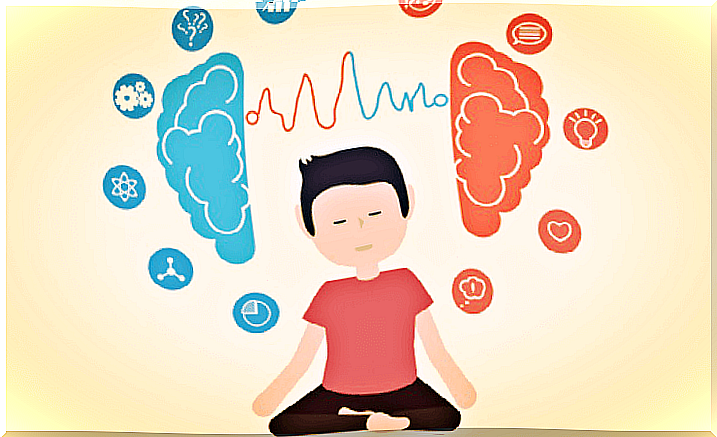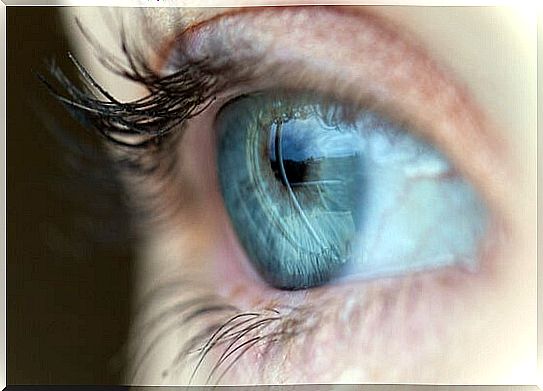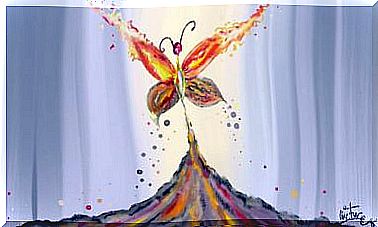What Is Mindfulness? We Clarify All Your Doubts!

Being fully aware of what is happening in the here and now is not an easy task. We are that hyperventilated society that schedules its happiness for the weekend or vacation, that lives surrounded by stimuli, notifications and lists of tasks to be completed. Being able to integrate the principles of Mindfulness into our lives, could undoubtedly bring us very positive changes, almost amazing …
Alberto is a sales manager at a well-known company. After almost 20 years of hard and efficient work, he has had to take leave due to a back injury. He has undergone surgery and underwent rehabilitation for four long months. However, he continues to suffer intense pain, and although he practices swimming daily, he does not experience improvement, he does not feel valid or safe.
A coworker has recommended that you go to Mindulness classes. Hearing that word, Alberto can’t help but laugh, because he has always seen these kinds of areas as something of little use, a little or no scientific discipline and a reflection of a passing fad of people who don’t know what to fill their boredom with.
Furthermore, he does not see himself sitting in the lotus position meditating with his palms together. .
Well, after that first 7-day experience, Alberto has been practicing Mindfulness for two years. At 49 years old, he has learned to lead his life more calmly, he has reduced stress, muscle strain and, most importantly, he no longer experiences so much pain in his back and has returned to work. Also, what you have noticed the most in all this time that you have been applying mindfulness in your day to day, is that you see life differently. Feel that somehow,.
To summarize, Alberto’s case is any example. Most people come to Mindulness by chance, out of curiosity, out of necessity, or recommended by friends or acquaintances. In turn, something that almost always happens is that no one really knows what is going to happen, if it is going to be useful to us or what kind of changes this type of mindfulness meditation can cause in us.
To learn much more about the subject, we suggest you review with us what is called Mindfulness.

Who “invented” Mindfulness? Do you have scientific evidence?
Mindfulness was not invented, it actually developed from the ancient traditional practices of Zen and Vipassana meditation. It should be noted that originally, this set of techniques and exercises did not seek something as simple as making the person feel better, what was intended was to promote personal liberation … there was therefore a spiritual component.
Now arrived the 70s . He himself had been practicing Zen meditation since he was 20 years old, and since then, he had not stopped investigating and scientifically demonstrating the benefits that practicing this exercise had for our health.

Since then, thousands of people around the world have carried out their MBSR (Mindfulness Based Stress Reduction) program to combat chronic pain, reduce anxiety and stress, sleep problems and depression. Likewise, and since Professor Kabat-Zin published his first scientific article on this discipline in 1980, each year between 200 and 800 articles are published that endorse the real benefits of Mindfulness.
Currently, both the MBSR (Mindfulness Based Stress Reduction) program and the MBCT (Mindfulnes Based Cognitive Therapy) are the mindfulness-based interventions with the most scientific evidence.
Attention is a muscle that we must train
As Daniel Goleman said at the time, attention is a muscle that we must work daily to be more receptive to what surrounds us as well as what happens inside us.
If this practice of Buddhist origin with more than 2,500 years of antiquity has reached the West it is not by chance, it is because scientists like Dr. Kabat-Zin -among others- know and understand that our demanding and demanding society accelerates us, grips us with our headaches, our anxiety, our pending tasks and our “I’m not here today, today I don’t have time” …
We are those people who eat in a hurry from 2.30 to 3.00 pm, who go to bed after midnight but not without first taking a last look at our mobile phone, and then sleeping for only a few hours. The early morning welcomes us again with its rush, with its quick breakfasts, with a bus to catch to go to work while the usual phrases “I’m missing something” appear in our minds again , “I feel empty” or even worse ” this makes no sense”.

Scientific studies are there to remind us of something important: Buddhists have been using mindfulness or mindfulness for more than two thousand years to develop it as a vigorous muscle that, so far, has not only allowed them to reduce stress or anxiety . In addition to all this, they are more receptive to what surrounds them, more creative, they are closer, they show greater emotional resistance and also, they enjoy what they do, even if their tasks are routine.
What Mindfulness can do for you
Mindfulness is a matter of practice. Also, we have to make one aspect clear: developing mindfulness is not achieved in a week or two, it takes practice and will. Our deconcentration is continuous, the bombardment of stimuli and recurring thoughts does not stop so easily, and therefore, some patience is required. However, once we establish the strategy, what we will notice in our day to day is the following.
We are more aware of our emotions
One of the best benefits of mindfulness is being able to promote emotional self-regulation, self-knowledge and self-control. Little by little we will be masters and lords of our inner universes, there where we can develop introspection, openness, reflection and self-acceptance.
We will improve our working memory
Working memory allows us to temporarily store new information in our brain, to later retrieve and process it. This system is basic and essential in our day to day, both to perform our work better and to perceive ourselves as more integrated in our present, in our tasks, relationships and responsibilities.
Prevents depressive symptoms
The development of a depression almost always involves those cycles of negative and exhausting thoughts that trap the person in a dark abyss, in a repetitive and annihilating dimension. However, if we begin to train in mindfulness, many of those mild depressive symptoms can lose steam.
We suddenly perceive other options, we regulate our emotions better, we release the knot of the past, we stop anticipating negative things in the future and we root ourselves in that present so full of opportunities.

You favor your resilience
Resilience, that wonderful ability to recover from adversity by emerging stronger, can be enhanced through mindfulness. As multiple studies have explained, Mindfulness favors the connectivity and activity of a brain region called the anterior cingulate cortex. Thanks to it, emotional self-regulation is favored and we learn from our past experiences to promote more optimal decision-making in the future.
Less stress
Do you know what other brain structure takes over every time you experience fear or feel like running away? The ‘amygdala’. This region of our brain is key when it comes to responding to stress, in fact, it is known that an overstimulation of the amygdala often leads to depression and anxiety disorders.
However, the good news is that constant practice of mindfulness allows us to reduce the size of the amygdala and reduce its activity. It is not something that we will notice in a month or two, it is the continuous practice throughout each day when little by little, our brain is experiencing powerful changes with which, to respond better to stressful situations to improve our mental and physical well-being .

To conclude, it is possible that many of us have not yet made contact with Mindfulness, that we see it as something that does not suit us, with our way of life … How am I going to sit for an hour, with the things that I have to do?
Well, it is necessary to remember once again that mindfulness is not practiced with crossed legs, neither with the hands nor with the eyes, it is not the body that we are going to use, it is the mind, it is the brain, what we want. it is “educating our attention.”
Such is the impact it can have on our lives, that John Kabat-Zinn himself is fighting for meditation to be that complementary approach to traditional medicine with which to offer a more comprehensive help to the person.
Trying it costs nothing and yet it can give us a lot …
Bibliography
-John Kabat-Zinn (2007) The practice of mindfulness , Madrid: Kairós
-Bhante Henepola Gunaratana (2014) The Mindfulness Book, Madrid, Kairós
-Thich Nhat Hanh (2014) E
-Javier García Campayo (2014)









